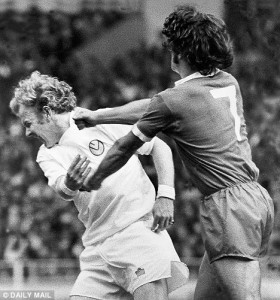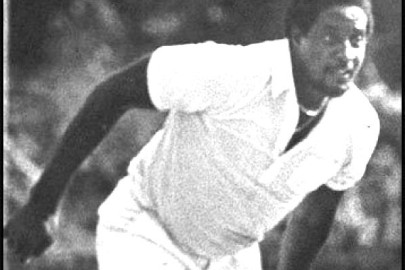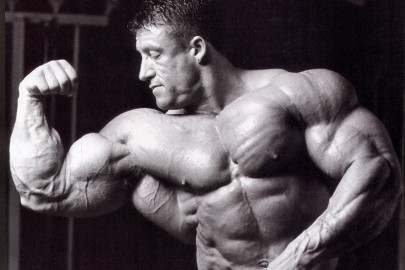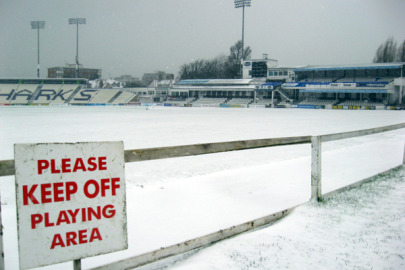James Hamilton continues his ‘The Football Fan Delusion’ mini–series by recalling the ‘Golden Age’ of the 1970s with rather less fondness than the average English football fan…
Even in football, there’s almost always been a golden age. In 1919 the FA Committee – mourning the Great War deaths of sons and nephews – harked back to their own youth in the 1860s. In 1933, Herbert Chapman thought it had been the Edwardian era of Newcastle United and Aston Villa. Matt Busby remembered Chapman’s own Arsenal and Alex James. I grew up in the 1970s, a period too depressed to conceive of golden ages.
But perhaps that was just me. Because long before Life On Mars put out its really quite nuanced take on the period, the seventies were being recollected in a better way, and not just by football fans. They still are. Memories, facts: studies showing that human happiness peaked in 1976; first-generation students remembering free higher education; the narrowing wealth gap as inflation worked over the rentiers; the Silver Jubilee and the High Speed Train; Noddy Holder at Christmas; Eric Morecombe still alive.
The seventies also brought with them the first tranche of those Then and Now books of town photographs. The High Street in 1913 and, on the next page, the High Street in 1977, trashed. Our family albums told the same story: page after page of gaunt but determined people in Sunday best, casting our modern chaos into a bad light, looking, as we did not, as though they knew what they were doing.
Find me aged four, in my gran’s knackered four-room terrace, being sponged in a tin bath in front of the fire by mum just off her night shift. That summer, someone would dump a coverless old Shoot on the dirt floor of our back alley. It had Pat Jennings in it, getting 1973’s Player of the Year. He looked fatherly, I intuited: there were no men in my house, and there’d be no more football until my third year of school.
The fracture between my 70s life and the old photographs might have been a social illusion best left to Alan Clark, but the footballing one was real enough. It cut the world of Matthews and Charlton utterly off from our own, and later, I’d realize that I’d lived through it.
1973-7: England’s defeats to West Germany, Holland and Italy. Shanks’ retirement, Charlton’s. The frittering of Clough’s best years, in Leeds and then in Brighton. Ramsey’s sacking: Revie’s flight. Crowds tumbling. And – above all – fan violence.
The early climax to this came at the 1975 European Cup Final. The burnt-out core of Revie’s Leeds had stumbled there, somehow, losing, controversially, to Der Kaiser’s Bayern. With hindsight, no one ever lost uncontroversially to a team with Beckenbauer in it, but Leeds fans didn’t know that, and, from the 63rd minute on, tore the Parc des Princes apart.
Ten years of more such golden days – and then, Heysel. I’d a stepfather by then to take me to matches, witnessing riots every time. After Heysel, he summed it all up thus: “That’s it. No more football. They’ll have to stop it now. It’s gone.”












Another brilliant bit of oblique-angled sports writing, this.
After Heysel it must have been impossible to imagine that football would turn into the family-entertainment media monster it is now. People were so disiluusioned with it in the 80s that there was even a brief craze for American Football. Interesting that Keys and Gray, the faces of soccer’s rescue for the Sky generation, have now become the dinosaurs and forcibly been made extinct.
I’m very suspicious of all claims about Golden Ages, partly because I know how easy it is to fall for them.
As Roger Sterling put it in series 1 of Madmen: “I bet there were people walking around in the Bible complaining about kids today.”
I don’t think people appreciate the constant rumble of violence that existed back then. Weekly punch-ups at the football, on the rugby field, at concerts and on the high street after the pubs closed. At least today’s binge drinking isn’t accompanied by semi-organised violence.
Thankfully the inability to stand upright does defuse ones ability to commit acts of violence. The semi-organised violence had been replaced, at least just before I decamped across the pond, by displays of semi-synchrionised public vomitting.
I rememeber walking through pedestrianised areas of Leeds and remarking how thoughtful the planners had been in installing the hand-holds on rubbish bins there seemingly for no other purpose than leaning over them and letting fly.
Now theres a thought. How about the language of regurgitation for a slang post?
Funny you should say that, Banished.
Watch out for Mr Slang’s post next week…